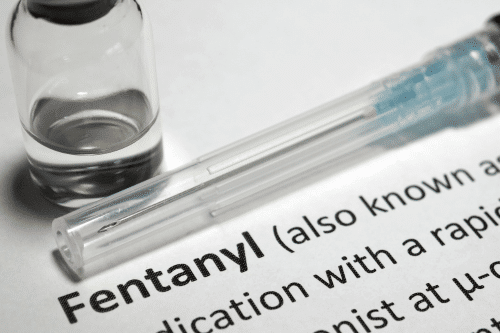Do Fentanyl Addicts Recover? Understanding the Path to Recovery
Yes, they absolutely can. Recovery from fentanyl addiction is challenging, but it is entirely possible with the right combination of treatment, support, and dedication. Overcoming fentanyl addiction requires addressing not only the physical dependency but also the psychological and emotional factors that contribute to substance use. This journey often begins with medically supervised detox to safely manage withdrawal symptoms, followed by comprehensive therapy and counseling to address the underlying causes of addiction. Support systems, such as family, friends, and community groups, play a crucial role in maintaining long-term sobriety.
Many individuals who have struggled with fentanyl addiction go on to lead fulfilling, drug-free lives, proving that recovery is not only possible but achievable. This article explores what the path to recovery entails, the hurdles people may face along the way, and inspiring real-life success stories that demonstrate the resilience of the human spirit.
Tennessee Behavioral Health
Key Takeaways
-
Fentanyl addiction can originate from legitimate pain management but quickly leads to dependency due to its high potency and withdrawal challenges.
-
Recovery from fentanyl addiction is achievable with early intervention, appropriate medical and therapeutic support, and a strong support system.
-
Long-term treatment strategies, including Medication-Assisted Treatment (MAT) and ongoing support, are crucial for maintaining sobriety and preventing relapse.
Understanding Fentanyl Addiction

Fentanyl, a synthetic opioid analgesic, is primarily used for severe pain relief. However, its potency is alarming, being 50 times stronger than heroin. This high potency means that even a small amount can lead to overdose, making prescription fentanyl a particularly dangerous opioid drugs.
The journey to fentanyl addiction often begins with legitimate pain management but can quickly spiral into dependency. Fentanyl acts by blocking pain receptors and boosting dopamine production, creating a powerful euphoria. Over time, users develop a tolerance, needing larger doses to achieve the same effect. This cycle of increasing use can lead to compulsive drug-seeking behavior and persistent usage despite negative consequences. Additionally, the euphoric effects of fentanyl and its use for self-medicating stress or anxiety further contribute to its misuse.
Withdrawal symptoms are a significant barrier to quitting fentanyl withdrawal and often lead to continued use. These symptoms can be severely unpleasant, including physical pain, nausea, and intense cravings. The fear of fentanyl withdrawal symptoms can trap individuals in a cycle of addiction, making it difficult to stop without professional help.
The risks associated with fentanyl use are grave, with life-threatening consequences such as respiratory depression and overdose. Understanding these aspects is crucial for recognizing the need for effective and immediate intervention.
The Reality of Recovery from Fentanyl Addiction

Recovery from fentanyl addiction is not only possible but achievable with the right support and treatment. It’s important to understand that recovery is a lifelong journey rather than a destination marked by total sobriety. With appropriate help, including evidence-based addiction-focused healthcare, individuals can significantly improve their chances of overcoming fentanyl addiction.
Early intervention significantly boosts the chances of successful recovery. Those who seek help early are more likely to benefit from the comprehensive support offered by physicians, therapists, and peers.
Recovery may require multiple attempts, and persistence is key. The journey may be long and challenging, but with the right treatment and unwavering support, lasting recovery is within reach.
Factors Influencing Recovery Success
Several factors influence the success of recovery from fentanyl addiction. These include medical interventions, therapeutic approaches, and the strength of support systems. Stressful life changes, particularly during young adulthood, can make individuals more vulnerable to substance use disorders, highlighting the need for a stable and supportive environment.
Receiving help for co-occurring disorders is essential for addiction treatment to be effective. Many individuals with substance use disorders also struggle with mental health issues, and addressing both simultaneously can significantly enhance recovery outcomes.
Fentanyl addiction treatment centers offer various forms of therapy and support, providing the stability and confidence needed to overcome addiction.
Medical Detoxification
Medical detoxification is a critical first step in treating fentanyl addiction. This process focuses on managing withdrawal symptoms and laying the groundwork for further recovery. During medical detox, medications are administered to alleviate the discomfort associated with withdrawal, improving adherence to the treatment program and stabilizing patients physically.
The goal of medical detox is not only to cleanse the body of fentanyl but also to prepare individuals for the next stages of addiction treatment. By managing acute withdrawal symptoms effectively, patients are better positioned to engage in comprehensive treatment programs that address the psychological and behavioral aspects of addiction.
Behavioral Therapy
Behavioral therapy is a cornerstone of fentanyl addiction treatment, focusing on changing the negative thought patterns and behaviors that contribute to substance abuse. Cognitive Behavioral Therapy (CBT) is particularly effective, helping individuals recognize and alter distorted thinking that leads to drug use.
Therapeutic interventions in fentanyl addiction treatment programs often include group therapy, individual counseling, and other forms of behavioral therapy. These therapies provide coping strategies, enhance emotional regulation, and foster resilience against relapse triggers.
Support Systems and Community
Support systems and community involvement play a vital role in the recovery process. Peer support groups, such as 12-step programs, offer shared experiences and emotional support that are crucial for maintaining sobriety. Family involvement in treatment can also enhance recovery outcomes, providing a solid foundation of support.
Real stories of recovery often highlight the importance of community and compassion. One individual credited their recovery to the supportive environment and therapeutic care at a rehab center. These narratives underscore that a strong support network, whether through family, friends, or peer groups, is indispensable in the journey towards recovery.
Tennessee Behavioral Health
Long-Term Treatment Strategies

Long-term treatment strategies are essential for sustaining recovery from fentanyl addiction. Aftercare programs, which include ongoing counseling and support, help individuals maintain sobriety and prevent relapse. These programs provide a safety net, ensuring that individuals continue to receive the care and support they need as they navigate life post-treatment.
Outpatient treatment offers flexibility, allowing individuals to manage their responsibilities while continuing their recovery journey. Regular therapy sessions, whether individual or group, help address potential triggers and reinforce skills learned during initial treatment.
Addressing the underlying causes of addiction is crucial for long-term success, as it mitigates the risk of relapse.
Medication-Assisted Treatment (MAT)
Medication-Assisted Treatment (MAT) is a proven approach to managing opioid addiction, including fentanyl. Medications such as methadone, buprenorphine, and naltrexone are used to reduce cravings and withdrawal symptoms, facilitating long-term recovery. These prescription opioids and medications for opioid use are often combined with counseling and behavioral therapies to provide a holistic treatment approach in addiction medicine.
The goal of MAT is to stabilize individuals and promote overall wellness, enabling them to lead productive lives free from addiction. By addressing both the physical and psychological aspects of addiction, MAT helps individuals maintain sobriety and improve their quality of life.
Relapse Prevention
Preventing relapse is a critical component of fentanyl addiction treatment. Continuing treatment beyond detox is essential, as it significantly reduces the risk of returning to drug use. A strong support system, including family, friends, and peer groups, enhances the chances of lasting recovery.
Behavioral therapy plays a pivotal role in relapse prevention by addressing the psychological issues that contribute to addiction. Developing coping strategies and managing triggers helps individuals build resilience and maintain long-term sobriety.
Challenges in Fentanyl Addiction Recovery
Recovery from fentanyl addiction is fraught with challenges, not least of which is the high risk of fentanyl overdose. Overdose deaths linked to synthetic opioids, particularly fentanyl, have surged dramatically, underscoring the severity of the crisis. The potency of fentanyl makes it a leading cause of overdose deaths in the U.S., with a significant portion of these deaths occurring in the context of drug use.
Mental health conditions such as depression and anxiety often co-occur with addiction, complicating the recovery process. Environmental stressors, including chronic pain and relationship pressures, can also increase the likelihood of fentanyl addiction and make recovery more challenging. Addressing these factors is crucial for effective and sustained recovery.
Signs of Successful Recovery
Successful recovery from fentanyl addiction is marked by several positive indicators. Stable moods and reduced agitation are often early signs of effective recovery. Individuals may also experience improved focus and concentration, which are essential for returning to everyday activities and responsibilities.
Successful recovery also includes normal eating habits, weight stabilization, and improved sleep patterns. Enhanced social interactions and better relationships with family and friends are also strong indicators that an individual is on the right path to long-term recovery.
Real Stories of Recovery

Real stories of recovery offer hope and insight into the journey of overcoming fentanyl addiction. Personal accounts, such as those of Cathryn Kemp, highlight the resilience and determination required to conquer addiction. Kemp, a former journalist, shares her harrowing experience with fentanyl in her book ‘Painkiller Addict: From Wreckage to Redemption,’ illustrating the depths of her dependency and the challenges of withdrawal.
Kemp’s story is a testament to the power of commitment and the possibility of recovery. Despite using up to sixty fentanyl lozenges a day at the peak of her addiction, she eventually found the strength to seek treatment and reclaim her life.
Stories like Kemp’s demonstrate that recovery is possible, no matter how severe the addiction.
How to Get Started on the Road to Recovery
The first step towards recovery from fentanyl addiction can be daunting but is crucial for a better quality of life. Seeking medical assistance is the first and most important step, which includes undergoing detox to manage withdrawal symptoms. Contacting support services, such as AdCare at 866-739-7692, can provide immediate help and guidance.
Committing to a suitable treatment program is essential for starting the recovery journey. Whether through inpatient rehab, outpatient rehab, or other substance abuse treatment programs, the goal is to overcome addiction and build a healthier, more fulfilling life.
Remember, the journey may be challenging, but with the right support and determination, recovery is within reach.
Tennessee Behavioral Health
Summary
In summary, fentanyl addiction is a severe and life-threatening issue that requires comprehensive treatment and unwavering support. Understanding the nature of fentanyl addiction, the reality of recovery, and the factors that influence success are crucial for overcoming this challenge. Medical detoxification, behavioral therapy, and strong support systems are key components of an effective treatment strategy.
The journey to recovery is a lifelong commitment, but with the right approaches and support, it is achievable. Encouraging real stories of recovery remind us that no matter how dire the situation, there is always hope. If you or a loved one is struggling with fentanyl addiction, take the first step today and seek the help needed to reclaim your life.
Fentanyl’s extreme potency, being 50 times stronger than heroin, makes even minute doses potentially lethal, posing a significant risk of overdose. This stark difference in strength underscores the importance of caution and awareness when dealing with such substances.
Yes, recovery from fentanyl addiction is possible with appropriate treatment and support. Engaging in a comprehensive rehabilitation program can significantly enhance the chances of a successful recovery.
The first steps in treating fentanyl addiction involve seeking medical assistance for detoxification and enrolling in a comprehensive addiction treatment program. Engaging in these initial steps is crucial for recovery.
Support from family and friends is essential for lasting recovery, as it significantly boosts motivation and emotional well-being. Their encouragement can make a meaningful difference in overcoming challenges.
Successful recovery from opioid use disorder is marked by stable moods, improved focus, normal eating habits, better sleep patterns, and enhanced social interactions. These indicators reflect a positive shift towards well-being and a healthier lifestyle.




